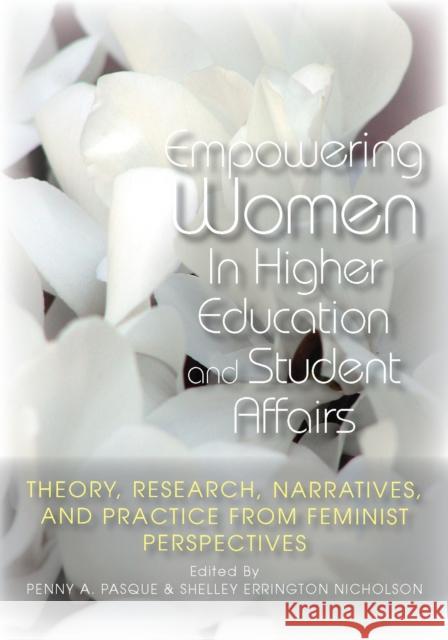Empowering Women in Higher Education and Student Affairs: Theory, Research, Narratives, and Practice from Feminist Perspectives » książka
Empowering Women in Higher Education and Student Affairs: Theory, Research, Narratives, and Practice from Feminist Perspectives
ISBN-13: 9781579223502 / Angielski / Miękka / 2011 / 384 str.
Empowering Women in Higher Education and Student Affairs: Theory, Research, Narratives, and Practice from Feminist Perspectives
ISBN-13: 9781579223502 / Angielski / Miękka / 2011 / 384 str.
(netto: 207,29 VAT: 5%)
Najniższa cena z 30 dni: 216,55
ok. 22 dni roboczych
Bez gwarancji dostawy przed świętami
Darmowa dostawa!
How do we interrupt the current paradigms of sexism in the academy? How do we construct a new and inclusive gender paradigm that resists the dominant values of the patriarchy? And why are these agendas important not just for women, but for higher education as a whole?
These are the questions that these extensive and rich analyses of the historical and contemporary roles of women in higher education-- as administrators, faculty, students, and student affairs professionals--seek constructively to answer. In doing so they address the intersection of gender and women's other social identities, such as of race, ethnicity, sexual orientation, class, and ability.
This book addresses the experiences and position of women students, from application to college through graduate school, and the barriers they encounter; the continuing inequalities in the rates of promotion and progression of women and other marginalized groups to positions of authority, and the gap in earnings between men and women; and pays particular attention to how race and other social markers impact such disparities, contextualizing them across all institutional types.
Written collaboratively by an intergenerational group of women, men, and transgender people with different social identities, feminist perspectives, and professional identities-- and who, in the process, built upon each other's work--this volume constitutes a call to educators and scholars to work toward centering feminist and other marginalized perspectives in their practice and research in order to equitably address the evolving complexities of college and university life. Employing a wide range of theoretical lenses, examining a variety of models of practice, and giving voice to a diversity of personal experiences through narrative, this is a major contribution to the scholarship on women in higher education.
This is a book for all women in the academy who want to better understand their experience, and to dismantle the remaining barriers of sexism and oppression--for themselves, and future generations of students.
An ACPA Publication











